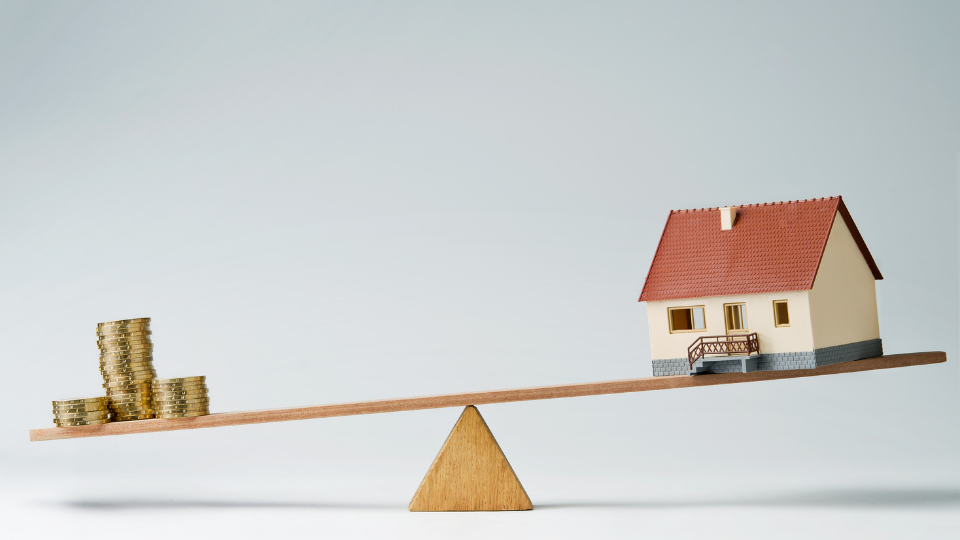
Landlords Cannot Hold Section 8 Tenants Hostage
May 10, 2021
COVID-19: Hipotecas y Ejecuciones Hipotecarias
May 11, 2021Download a PDF Version
- What are my options if I cannot make my monthly mortgage payments?
- What is Forbearance?
- What happens when the forbearance ends?
- How do I know whether I have a federally backed mortgage?
- Are there other options besides forbearance agreements?
- When can my lender start a foreclosure action?
- I have an auction date scheduled. What should I expect?
- Before December 28, 2020, I received a Summons and Complaint or other documents that say I have to answer or appear in court. What should I do?
- I have a reverse mortgage. What should I do if I am unable to pay my property taxes?
- Where can I learn more about programs to help people through the public health emergency?
What are my options if I cannot make my monthly mortgage payments?
If you have suffered financial hardship since the start of the COVID-19 pandemic, you are likely eligible for forbearance in making mortgage payments for up to 360 days.
Most homeowners have federally backed mortgages. If you are one of them, you may ask your servicer for a forbearance of up to 180 days. The forbearance can be extended for an extra 180 days.
If your mortgage loan is held or serviced by a New York-regulated institution, you may also be entitled to forbearance.
If your mortgage is not federally backed and not serviced by a NY-regulated entity, you may still seek a forbearance, but the length and terms will be set by the entity servicing the loan. It would be best if you requested a forbearance in writing, explain that it is related to the public health emergency, and keep a copy of the letter along with proof of sending (whether by mail, fax, or email).
If your lender refuses to give you forbearance contact Nassau Suffolk Law Services at (631) 232-2400 (Suffolk) or (516) 292-8100 (Nassau), another legal services provider, a non-profit housing counselor, or the New York State Attorney General’s office at 1-800 771-7755.
What is Forbearance?
Forbearance delays the due date for your mortgage payments. Forbearance is not forgiveness. You are still responsible for payments skipped during the forbearance.
Both the federal CARES Act and New York State Law passed in response to COVID-19 prohibit late fees and charges beyond the interest calculated as if the payments were made on time. Forbearance agreements not subject to the CARES Act or NYS regulations may include late fees and extra interest charges.
Escrow charges for property taxes and/or property insurance are not subject to forbearance. Though property charges may not be due for several months after the forbearance period begins, mortgage servicers are required to ensure there is enough in your escrow account throughout the entire year and may require continued payment of the taxes and/or insurance portion of the monthly mortgage payment during the forbearance period.
What happens when the forbearance ends?
Homeowners with federally backed mortgages and those serviced by NYS regulated institutions have the option to choose whether to extend the loan term for the length of the forbearance period (adding the number of months of the forbearance to the end of the loan term), elect to spread forbearance payments on a monthly basis for the remaining loan term, or establish a non-interest bearing balloon payment at the end of the mortgage term for the forbearance amount.
How do I know whether I have a federally backed mortgage?
Most federally-backed mortgages are owned by Fannie Mae or Freddie Mac, guaranteed or insured by HUD (FHA), or the VA. Fannie Mae and Freddie Mac have online loan look-up tools for homeowners to learn whether either of these government-sponsored entities currently owns your loan.
FHA and VA loans are identified on the loan documents themselves. However, it is possible that a loan initially insured or guaranteed by the FHA might not be anymore.
Are there other options besides forbearance agreements?
Mortgage servicers will consider loan modifications for most homeowners who have suffered a financial hardship. Loan modifications are more permanent than forbearances. Loan modifications come in lots of different forms. Some options are:
-Extending the maturity date;
-Lowering the interest rate; and/or
-Establishing a balloon payment for a percentage of the arrears.
HUD, the VA, Fannie Mae, and Freddie Mac have written rules to determine eligibility and the criteria for modifying the loan.
Other lenders have individual (proprietary) loss mitigation options, including loan modifications.
NY’s Homeowner Protection Program (“HOPP”), funded through the NY Attorney General, and provides free housing counseling and legal services for homeowners facing foreclosure. These non-profit agencies help homeowners with loss mitigation. Find a non-profit agency on the NY Department of Financial Services webpage.
Reinstatement of the loan is another possibility. It will require the homeowner to have enough money to pay all outstanding arrears, an amount that may be several thousand dollars, depending on how many months you have been in default.
When can my lender start a foreclosure action?
There are currently a number of programs in place to protect homeowners who are experiencing financial problems during the pandemic. All foreclosures on occupied homes are currently stayed until at least February 26, 2021.
NY COVID-19 Foreclosure Prevention Act
On December 28, 2020, the COVID-19 Emergency Eviction and Foreclosure Prevention Act of 2020 was signed into law in New York. The law covers all actions to foreclose a mortgage on residential property, as long the owner owns fewer than ten (10) total residential units and lives in one of the units. Foreclosure proceedings are suspended until at least February 26, 2021, regardless of how far along the case may be, including where the court issued a judgment of foreclosure and sale.
If a homeowner submits a Mortgagor’s Declaration of COVID-19 related hardship, the foreclosure action will be suspended until May 1, 2021. Homeowners may submit a Hardship Declaration if they cannot pay their mortgage in full because of a significant loss of household income because a tenant has defaulted on a significant amount of rent, or other COVID-19 related circumstances, that reduced your income or significantly increased expenses. Delivering the Hardship Declaration to the mortgage servicer will also stop any new foreclosure proceeding until at least May 1, 2021.
You can find a copy of the Declaration form here.
Federally-Backed Mortgages
Homeowners with federally backed mortgages facing foreclosure are also protected by guidance issued by the various federal and government-sponsored agencies. Fannie Mae and Freddie Mac suspended foreclosure activity through January 31, 2021. The VA, FHA, and HECM suspended foreclosures through March 31, 2021. You don’t need to use the Hardship Declaration to get these protections, but delivering the declaration will stop foreclosure activity longer, until at least May 1, 2021.
Normal Foreclosure Timing
New York State law has long required the service of a ninety (90) day notice to the homeowner before the mortgage holder may start a foreclosure action. The lender cannot start a foreclosure action until the end of the 90-day notice period. If you have received forbearance, your loan should be considered current. This means no 90-day notice should be served, and no foreclosure proceeding should be commenced until after the forbearance period ends. However, if you are behind on your mortgage and are not in a forbearance plan, your lender or servicer may send you a 90-day notice before May 1, 2021, even if you sent them the NY Hardship Declaration.
I have an auction date scheduled. What should I expect?
Before an auction can occur, a new status conference should be scheduled between the parties and the court. If you provide the NY Hardship Declaration by the time of the conference, the auction should be postponed until after May 1, 2021. Check the court’s website for a new auction date.
Before December 28, 2020, I received a Summons and Complaint or other documents that say I have to answer or appear in court. What should I do?
While almost all NY foreclosure cases are stayed until at least February 26, 2021, it is not entirely clear how the courts will handle deadlines that fell between December 28, 2020, and February 26, 2021. Please contact the court or Nassau Suffolk Law Services for more information about how to handle these deadlines. Contact Nassau Suffolk Law Services for more information on what to expect in your case (631) 232-2400 (Suffolk) or (516) 292-8100 (Nassau).
I have a reverse mortgage. What should I do if I am unable to pay my property taxes?
Contact your servicer to let them know if you will not be able to pay your property taxes or insurance. HUD instructed reverse mortgage (HECM) servicers not to start the foreclosure process for six months, with an additional six-month delay available with HUD approval. The deadline to request this extension is February 28, 2021.
Where can I learn more about programs to help people through the public health emergency?
•Department of Financial Services: Coronavirus: Mortgage and Foreclosure
•Additional Resources: Click here to see additional resources and learn about the economic stimulus payment.
COVID-19 Mortgage Wellness Check – Act Today
Help is available through the NYS Office of the Attorney General’s Homeowner Protection
Program (HOPP) at no cost to you.
If you are a NYS homeowner struggling to make payments, or in a forbearance agreement with your servicer, know your options. You may qualify for new local or federal assistance. Beware of scams and of companies asking for payment to help with your mortgage. Before you give up your home, have your mortgage checked by a qualified NYS professional for free.
Call the NYS HOPP Toll-Free Hotline at 1-855-HOME-456 (1-855-466-3456) or go to HomeownerHelpNY.org to get connected with a non-profit in your area.


